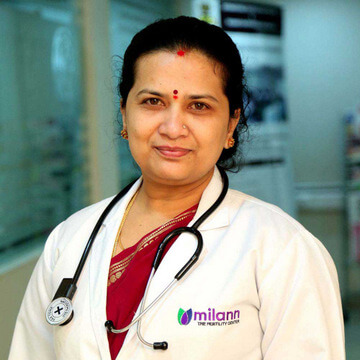Ectopic Pregnancy and Solutions
Dr. Sunitha Mahesh, Medical Director & Senior Consultant, Milann Fertility Center, Bengaluru) Pregnancy relies on a series of intricate steps, one of which is the movement of a fertilized egg (embryo) to the uterus for implantation. In

Dr. Sunitha Mahesh, Medical Director & Senior Consultant, Milann Fertility Center, Bengaluru)
Pregnancy relies on a series of intricate steps, one of which is the movement of a fertilized egg (embryo) to the uterus for implantation. In an ectopic pregnancy, however, the embryo mistakenly implants outside the uterus, often in the fallopian tube, which isn’t designed to support an embryo. This serious condition may occur roughly in 2% of pregnancies and can cause severe complications like internal bleeding, and severe infection, requiring urgent medical attention. Ectopic pregnancies cannot progress as normal intrauterine pregnancies, which makes early detection and prompt treatment vital to prevent life-threatening outcomes.
Early symptoms of an ectopic pregnancy can resemble those of a normal pregnancy which include vaginal bleeding, lower abdominal pain, and back pain, as well as weakness or dizziness. These symptoms may intensify in the event of a fallopian tube rupture along with other symptoms like shoulder ache, fainting, extreme pain, and rectal pressure. At times severe lower abdominal pain could indicate rupture of the fallopian tube, necessitating immediate medical attention. If any of these symptoms are noted, please consult your doctor for evaluation.
The cause of ectopic pregnancy is often unknown, but previous scarring or inflammation of the fallopian tubes, hormonal imbalances, genetic issues, and structural abnormalities in the reproductive organs can be probable causes for ectopic pregnancy. Risk for ectopic pregnancy increases in women with age >35yrs, smoking, history of ectopic pregnancy, history of pelvic surgeries, endometriosis, pelvic inflammatory disease, sexually transmitted infections, or fertility treatments, conception despite an intrauterine device or tubal ligation. If you have these risk factors, consult your doctor to discuss prevention strategies.
Ectopic pregnancies pose serious risks to the mother with no viable pregnancy, necessitating prompt medical treatment to protect the mother’s health and future fertility. Treatment varies based on the pregnancy’s location and stage. Medication like methotrexate can stop the growth of the ectopic pregnancy in the early and unruptured stage and when the mother is in stable condition, potentially avoiding surgery. If surgery is needed, a laparoscopy is performed which includes removing that part of the fallopian tube in which pregnancy developed and repair of the tube is done. Post-surgery care includes watching for signs of infection, avoiding undue strenuous activities, and avoiding pregnancy for 3 months.
You can reduce the risk of ectopic pregnancy by abstaining from tobacco, maintaining a healthy weight, regular health checkups, detecting pelvic inflammatory disease in its early stages and getting treated, engaging in safe sexual behavior, and avoiding STIs. Before attempting to conceive, discuss any risk factors with your healthcare physician.
Although ectopic pregnancies cannot be avoided, early detection and prompt treatment results in better outcomes. The long-term outlook is usually positive, with many women having healthy pregnancies after an ectopic pregnancy, but women with existing reproductive issues may face challenges. Support groups and self-care can help manage the emotional impact of pregnancy loss.






